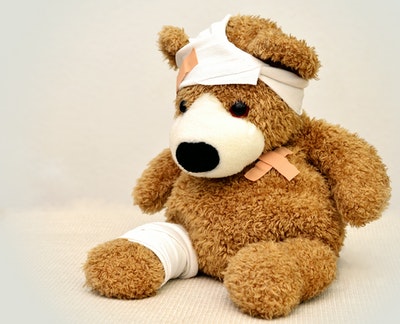From Calm Seas to Stormy Waters: How to Handle a Boating Accident and Seek Fair Compensation
Picture a beautiful sunny day, gentle waves lapping against the boat, and a sense of serenity surrounding you.
However, sometimes, even in the calmest waters, accidents happen. Boating accidents can turn a blissful day on the water into a chaotic and distressing experience.
The aftermath of such an event can be overwhelming, leaving you with physical injuries, emotional trauma, and financial burdens.
In this blog post, we will navigate the turbulent waters of boating accidents and provide you with essential steps to handle the situation and seek fair compensation.
Stay Calm Amidst the Chaos:
As the saying goes, “You cannot calm the storm, so stop trying. What you can do is calm yourself. The storm will pass.” When faced with a boating accident, it’s vital to keep as calm as you can, considering the situation.
Giving in to panic can exacerbate matters and impede your ability to act wisely. Inhale deeply, evaluate your injuries and those of your fellow passengers and confirm that everyone has a life jacket on.
Attend to Injuries and Seek Medical Help:
Prioritizing the safety and health of everyone on board is paramount. Address any immediate injuries, and if needed, summon emergency medical help.
Even if you think your injuries are insignificant, it’s wise to have a medical assessment, as some injuries might not manifest immediately and could deteriorate later.
Common injuries in boating accidents can include:
- Head trauma and concussions.
- Cuts, lacerations, and abrasions.
- Broken bones and fractures.
- Sprains and dislocated joints.
- Drowning or near-drowning incidents.
- Hypothermia or heat-related injuries.
- Contusions and bruises.
- Back and neck injuries.
- Internal organ damage.
- Amputations or severe limb injuries.
Gather Information and Document the Scene:
Once the immediate danger has passed, and if you’re physically capable, assemble as much information as possible regarding the incident.
Capture pictures of the vessel, its location, and any discernible damage. Collect contact information from witnesses and fellow boaters who may have seen the accident unfold.
This kind of documentation is important because it can be essential when pursuing a claim. Furthermore, if you choose to work with a boating accident lawyer in Mobile, AL (or your local area), having detailed evidence from the scene will help strengthen your case and ensure you receive the compensation you deserve.
Such documentation will prove invaluable when seeking compensation from insurance companies or filing a lawsuit.
Information to gather includes:
- Date, time, and location of the boating accident.
- Names and contact information of all involved parties.
- Description of the accident and its cause.
- Injuries sustained by passengers and crew.
- Any immediate first aid was provided on the scene.
- Vessel details: type, size, registration number.
- Weather and water conditions at the time of the accident.
- Witnesses’ names and contact information.
- Any relevant photos or videos taken after the accident.
- Involvement of law enforcement or emergency services.
Report the Accident to the Appropriate Authorities:
Reporting the boating accident to the correct authorities promptly is vital. Different jurisdictions may have varying reporting obligations, so make sure to align with the local regulations.
Proper reporting not only aids in potential legal proceedings but also contributes to enhancing water safety to avert future accidents.
Consult with a Boating Accident Attorney:
Navigating the legal waters after a boating accident can be complex and daunting. Retaining an adept boating accident lawyer is key to securing just compensation for your injuries and losses.
Orange County boating accident lawyers can assess your case and make sure you get the maximum possible compensation for what has happened.
A proficient attorney will steer you through the legal maze, negotiate with insurers, and advocate for your interests in court if required.
Preserve Evidence and Avoid Admitting Fault:
As the legal process unfolds, preserving evidence becomes paramount. Keep any physical evidence related to the accident intact and avoid making statements that could be interpreted as admitting fault. Leave the determination of responsibility to the professionals and focus on your recovery.
File an Insurance Claim:
If your boat or personal injuries are insured, initiating a claim is time. Collaborate closely with your attorney to gather all required documents and proofs to back your claim.
Anticipate potential pushback from insurance providers, but with robust evidence and legal backing, you enhance your likelihood of a just settlement.
You can then use that settlement to help get your boat fixed back to the way it was. But, if you plan on fixing it yourself, then that money will come in handy when you need to buy new components from a 316 Stainless Socket Head Screw all the way to a new propeller. Surveying your boat will show you the extent of the damage and what you should be buying to restore it.
Pursue Fair Compensation Through Legal Action:
Should negotiations with insurers falter, legal action might be necessary.
Your attorney will lead you through the process of lodging a lawsuit against the liable party, aiming for fair compensation for medical bills, lost earnings, distress, and additional damages.
Conclusion
There’s no denying that a boating accident can turn a tranquil day on the water into a chaotic and stressful ordeal.
By staying calm, attending to injuries, gathering information, and seeking legal guidance, you can navigate the stormy waters of a boating accident and seek fair compensation for your losses.






